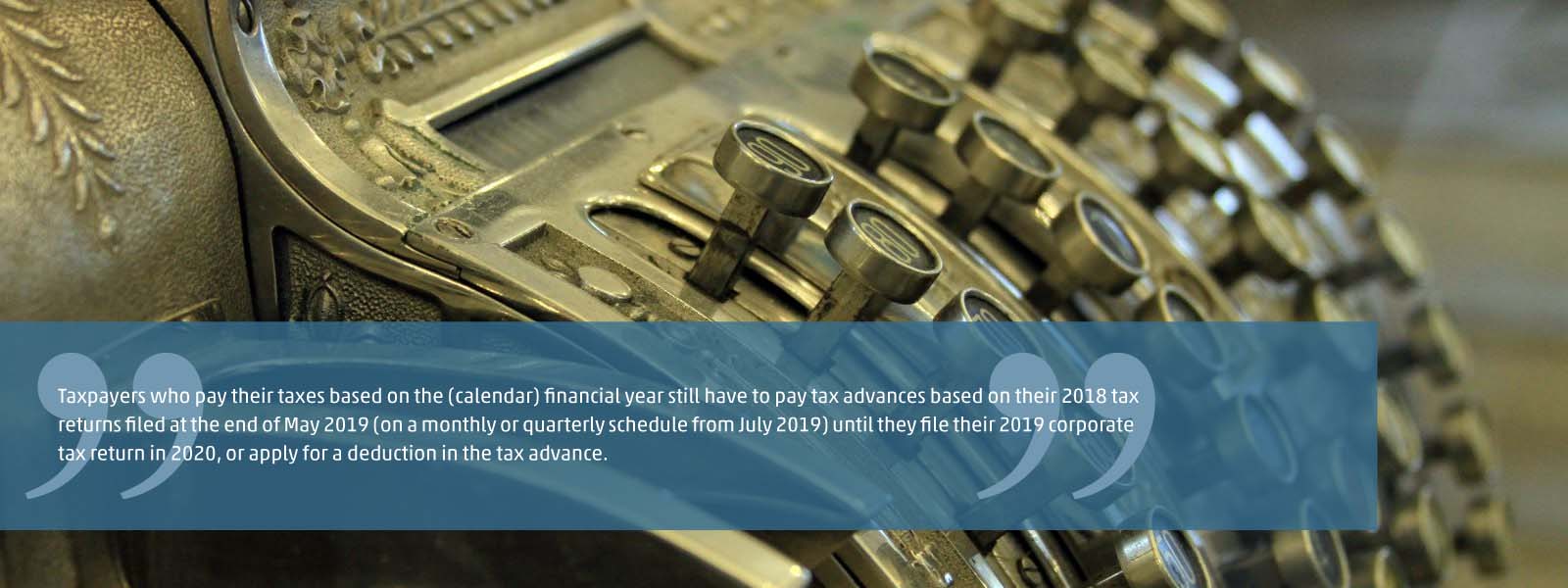In recent days and weeks in Hungary we have had to familiarise ourselves with a number of regulations affecting taxation. It is not easy to come to grips with the changing legal environment, and the impact of the coronavirus has forced us to rethink the regular taxation and accounting procedures due at the end of May. Below we give you a brief summary of what business decisions Hungarian companies will have to make in the coming period, primarily with regard to corporate tax advances, and the changing rules of development reserves in relation to corporate tax.
Decisions regarding corporate tax return deadline
As we previously revealed, taxpayers have until 30 September 2020 to assess, declare and pay the annual and unscheduled amounts of corporate tax, small business tax, energy supplier income tax, local business tax and the innovation contribution, as well as to assess and declare any corporate tax advances due for the period between 22 April and 30 September 2020.
Hungarian taxpayers must assess and pay the corporate tax advance due until 30 September 2020 based on the advance obligation defined in the last submitted return, and with the same schedule, by the relevant deadline. The tax advance return on this may be submitted by 30 September 2020.
In practice, this means that taxpayers who pay their taxes based on the (calendar) financial year still have to pay tax advances based on their 2018 tax returns filed at the end of May 2019 (on a monthly or quarterly schedule from July 2019) until they file their 2019 corporate tax return in 2020. It is not hard to imagine that the higher figures stemming from a successful financial year in 2018 will result in much higher tax advance payments just now (if 2020 results are significantly worse, some taxpayers may already have paid their entire 2020 tax with the tax advances).
In such cases, Hungarian taxpayers may consider
- submitting their corporate tax returns by the end of May 2020, and hence paying a smaller tax advance from July 2020, and/or
- requesting a reduction of tax advances before they fall due, in accordance with the rules under the state of emergency, if, according to their calculations, their taxes for 2020 will not reach the amount of the tax advance.
Taxpayers obliged to prepare transfer pricing documentation must also ensure they prepare the transfer pricing documentation before filing the return, and they also have to consider the option for corporate tax allocations.
The timing of the returns for other annual taxes (typically the local business tax and the innovation contribution) must be carefully thought through as well (these two taxes/contributions are assessed differently from corporate tax).
Who in Hungary may be affected by the new rules on development reserves for investment, and what should they look out for?
According to the new rules, companies may allocate a reserve up to 100% of their pre-tax profit as a deductible for corporate tax purposes, but no more than HUF 10 billion (roughly EUR 28 million) per fiscal year (the deductible is accounted in the year the reserve is allocated). The amount of development reserve can be used up for investments within four years. The development reserve allocated in this way can be used to buy tangible assets (new or even second-hand).
It may not be used for
- non-cash contributions,
- assets received free of charge, and
- investments accounted for in relation to tangible assets on which ordinary depreciation may or must not be recorded, except for historic listed monuments, or buildings and structures placed under local protection.
For tangible assets acquired from the development reserve, no depreciation can be claimed in the corporate tax up to the amount of the development reserve used. So in such cases, the depreciation is essentially charged earlier. Owing to the tax base allowance taken into account in the development reserve, taxpayers are still subject to the corporate tax prevailing in the allocation year and any late payment interest on the portion of the amount previously claimed as a deductible for tax purposes which is not spent on investment in the four years following the allocation year and is not used by the end of the fourth fiscal year.
So to sum up (even for the 2019 fiscal year and in accordance with our previous article) taking development reserves into account:
- may result in a significant tax base reduction in the year of allocation (even up to 100% of the profit);
- is only possible for acquiring tangible assets (with due consideration of the exceptions);
- results in a higher tax payment liability after allocation due to the special rules on considering depreciation, in compliance with the general rules on depreciation;
- means you have to weigh up the possibility of having to repay taxes and make late interest payments if the investment goals are deemed inappropriate or the investments don’t take place;
- means the tax base reduction owing to the development reserve may impact on unused loss carry-forwards too.
WTS Klient Hungary is doing everything it can to provide up-to-date information on the further details of the economy protection action plan launched as a result of the state of emergency, and to help its clients in these tough times too. If you have any questions on how the new measures will impact on your business, and what opportunities the current regulation brings with regard to tax payments for instance, feel free to contact us.











